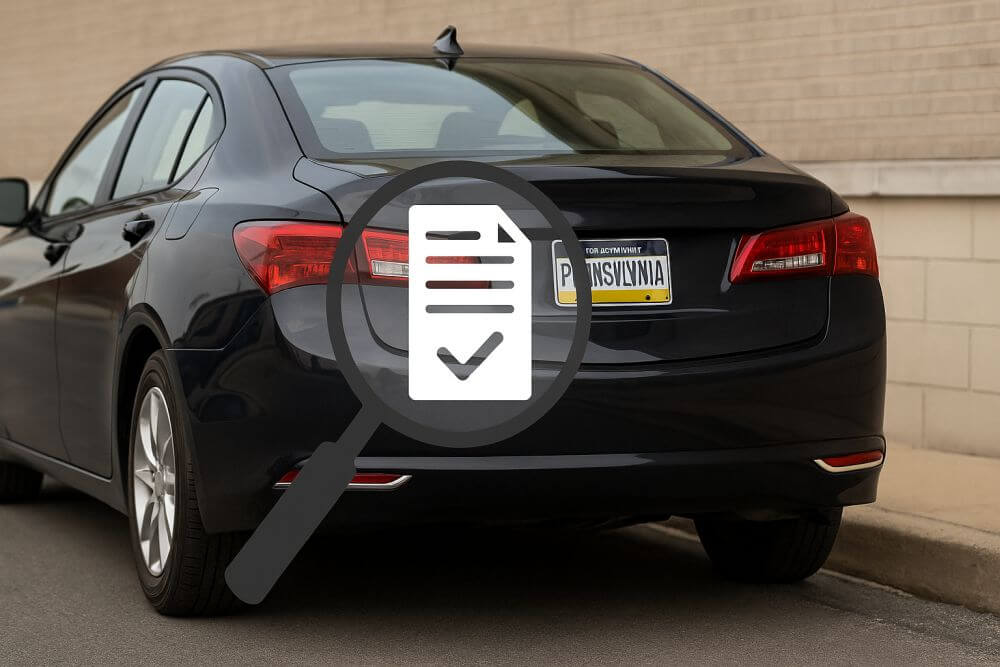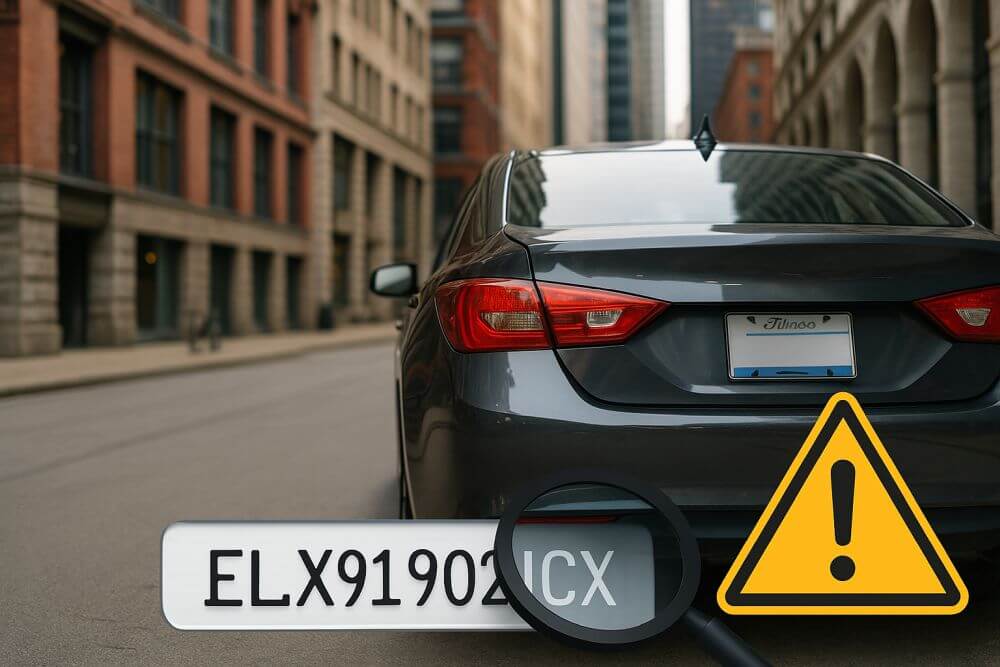Can you really use a license plate number to check a vehicle’s past owners in the United States? The answer is yes—but only partially and with strict limitations. While it is not legally possible for private individuals to obtain the personal details of past or current vehicle owners directly, there are legitimate ways to trace a car’s ownership history without violating any laws.

In this guide, we’ll cover what you can and can’t access using a license plate number, the tools available to the public, and how professionals like investigators and attorneys legally obtain owner information.
What the Law Says: Understanding the DPPA
The Driver’s Privacy Protection Act (DPPA) is a federal law that prohibits state DMVs from disclosing personal information tied to motor vehicle records unless specific, lawful exceptions apply. This means:
- Private individuals cannot access the current or past owner’s name or address using a license plate number alone.
- Information requests must be submitted under permissible use cases, such as for law enforcement, insurance claims, legal proceedings, or by licensed investigators.
- Violating the DPPA can result in civil fines and criminal penalties.
The intent of the DPPA is to protect individuals from harassment, stalking, and privacy breaches.
What You Can Learn from a License Plate
Although you can’t obtain personal information, a license plate number (combined with the state) can lead to the Vehicle Identification Number (VIN) through online tools. From the VIN, you can access:
- Number of previous owners
- Title transfer history
- Vehicle registration locations
- Type of prior use (personal, rental, fleet)
- Salvage, auction, and accident records
These insights are invaluable when evaluating a used car, researching ownership trends, or confirming a seller’s claims.
Tools That Help You Check a Vehicle’s Past
Here are reputable tools that allow legal access to vehicle ownership history data:
1. Carfax
Carfax reports show:
- Ownership history and number of owners
- Title changes by date and state
- Service and accident records
Search by license plate and state to fetch the VIN, then generate a full report (paid).
2. AutoCheck (Experian)
Provides:
- Ownership timeline
- Title events and registration changes
- Auction and usage type indicators
AutoCheck also accepts license plate searches.
3. VinCheckPro
Use VinCheckPro’s Free License Plate Lookup to:
- Convert plate to VIN
- Check ownership count, title brands, odometer, lien, and recall history
- Access NMVTIS-backed data sources
4. NMVTIS Reports
The National Motor Vehicle Title Information System provides title and brand history, but not personal owner details. It’s ideal for:
- Verifying salvage and rebuilt status
- Tracking title transfers across states
You can purchase NMVTIS reports through approved providers.
5. NICB VIN Check
This free service from the National Insurance Crime Bureau helps check:
- Theft records
- Total loss/salvage declarations
(Note: VIN required—not available via plate alone.)
Professional Channels for Accessing Owner Information
When personal owner details are required for legal or insurance purposes, here are the valid options:
1. Licensed Private Investigators
- Can access DMV records for permissible uses under DPPA
- Typically used for fraud investigation, asset recovery, or hit-and-run cases
2. Attorneys
- May request DMV data as part of a legal proceeding or lawsuit
- Common in accident claims or vehicle-related civil litigation
3. Insurance Companies
- Have authority to look up owner data when handling accident claims, theft reports, or fraud detection
4. Law Enforcement
- Can immediately run plates to identify owners
- Used in cases of crime, hit-and-run, or public safety concerns
Always consult with the appropriate professionals if your need qualifies as a permissible reason.
How Ownership History Is Revealed Legally
You may not see names, but many reports do reveal:
- The number of owners
- Timeline of ownership
- Whether the car was leased, personal, rental, or fleet
- Where the car was registered over time
- Transfer patterns, such as state-to-state moves, auction listings, and title updates
Historical documents like:
- Vehicle titles (if already in your possession)
- Bills of sale
- Salvage auction records
- Insurance and accident reports
may also indirectly reveal prior ownership history without breaching privacy laws.
Red Flags and Illegal Practices to Avoid
Stay away from sites or individuals that:
- Promise to provide “name and address of vehicle owner” without legal backing
- Ask you to impersonate law enforcement
- Offer DMV or law enforcement access through shady means
- Harvest data in violation of state and federal privacy laws
Engaging in such practices can result in severe penalties, including fines or lawsuits.
Current vs. Past Ownership: Know the Difference
- Current Owner: Personal details are only accessible to law enforcement, insurance companies, and legal professionals with a valid case.
- Past Ownership: You can access the count, timeline, and nature of previous ownerships—but not the names or addresses of those individuals.
For used car buyers or researchers, this high-level history is usually enough to make informed decisions.
Step-by-Step: How to Research a Vehicle’s Ownership History
- Note the plate number and issuing state
- Use VinCheckPro, Carfax, or AutoCheck to convert the plate to a VIN
- Purchase a vehicle history report
- Examine the ownership section: owner count, timeframes, usage type
- Cross-check title transfer history and location changes
- (Optional) Purchase a NMVTIS report for federal title verification
- If owner identity is legally required, consult law enforcement, an attorney, or licensed PI
- Document all steps and use information responsibly
Final Word
You can legally check a vehicle’s ownership history using a license plate number—but not the personal details of past or current owners.
Use public tools like VinCheckPro, Carfax, or AutoCheck to access non-personal vehicle data that tells the story of a car’s past.
For legal, insurance, or criminal matters, work with a licensed professional.
Respect privacy, follow the law, and make informed decisions based on the data that is available to you.


